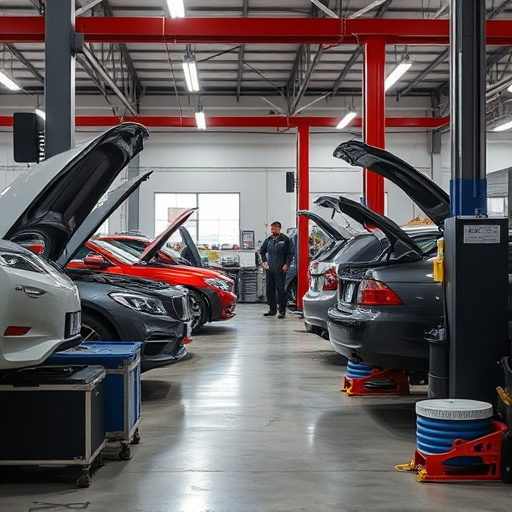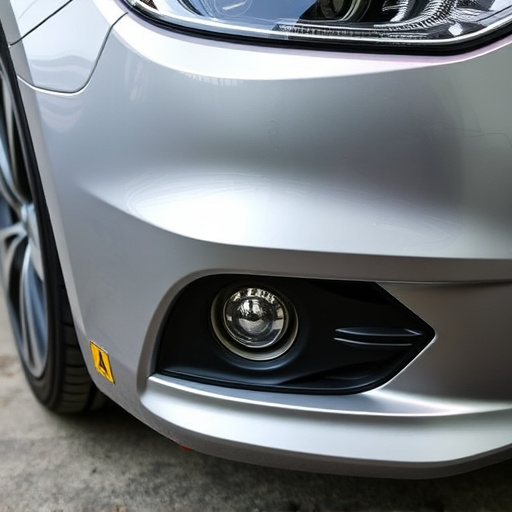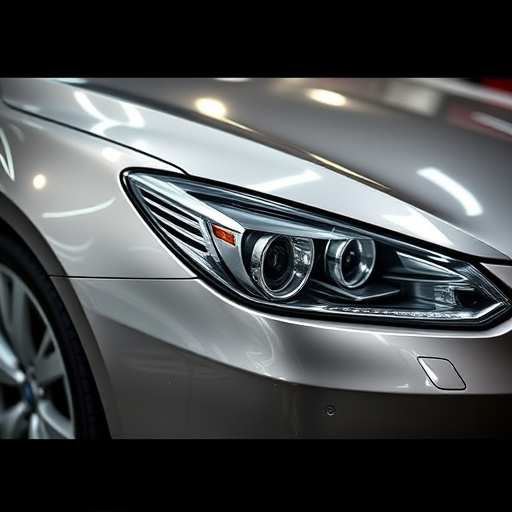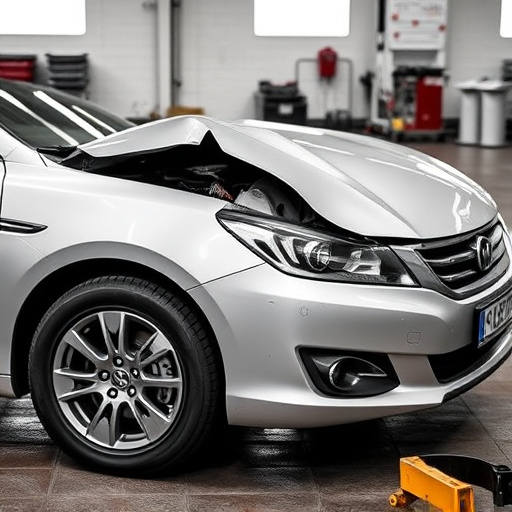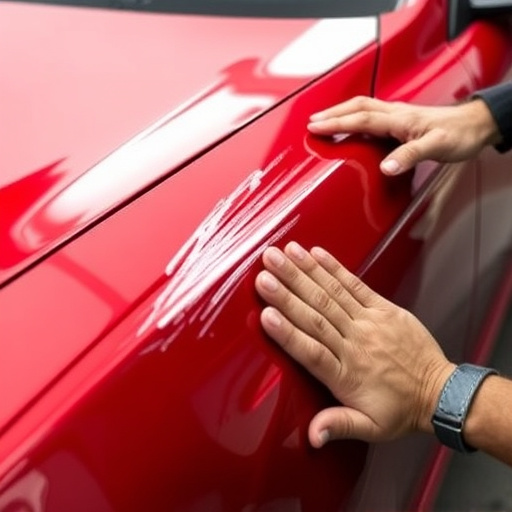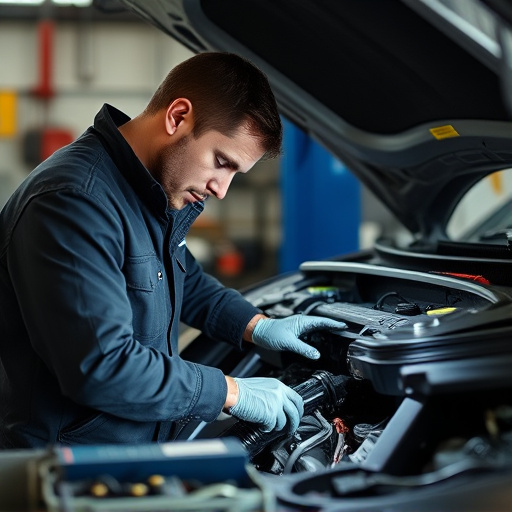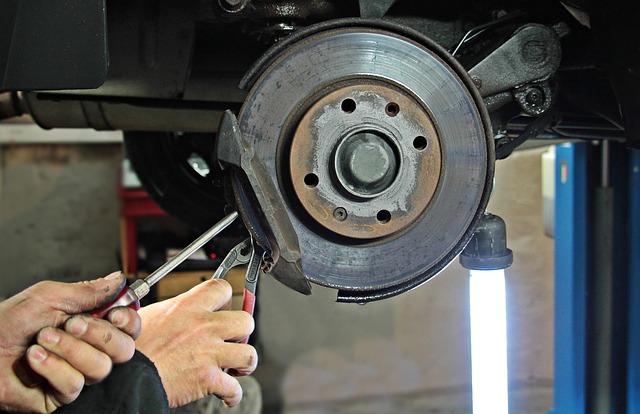Heated glass technology, especially heated windshield replacement, offers significant advantages in the automotive industry. It enhances comfort by maintaining interior temperatures, prevents fogging and ice buildup in cold climates, and reduces wiper usage, lowering collision repair needs. This innovation also contributes to energy efficiency, environmental impact reduction, and improved vehicle aesthetics through paintless dent repair techniques. Thermal glass integration revolutionizes safety and comfort, addressing freezing conditions, enhancing durability, and streamlining collision repair processes.
In today’s pursuit of energy efficiency, thermal glass integration stands out as a game-changer. This innovative technology goes beyond traditional heated windshields, offering a sophisticated solution for both safety and comfort. By harnessing the power of heated glass, vehicles can achieve remarkable fuel efficiency while providing an enhanced driving experience. This article explores the advantages of thermal glass integration, focusing on its impact on vehicle performance, safety, and driver comfort.
- Unlocking Efficiency: Heated Glass Technology
- Advantages of Thermal Glass Integration in Vehicles
- The Impact: Improved Safety and Comfort
Unlocking Efficiency: Heated Glass Technology

Heated glass technology offers a significant advantage in the automotive industry, particularly with heated windshield replacement. This innovative feature goes beyond basic functionality to unlock impressive efficiency gains for modern vehicles. By incorporating thermal glass into vehicle designs, engineers can create interiors that maintain comfortable temperatures year-round, enhancing driver and passenger well-being.
In colder climates, heated windshields prevent fogging and ice buildup, ensuring optimal visibility during winter driving conditions. This not only improves safety but also reduces the need for frequent defrosting and wiper usage. For automotive restoration or collision repair services, integrating thermal glass can be a game-changer, providing clients with enhanced comfort features and improved vehicle performance, especially in regions experiencing extreme weather conditions.
Advantages of Thermal Glass Integration in Vehicles

The integration of thermal glass technology in modern vehicles offers a host of advantages that enhance both performance and driver comfort. One of the key benefits is improved safety, particularly with features like defrosting and demistings. In cold climates or after accidents, such as a Mercedes Benz collision repair, heated windshields can prevent condensation and ice buildup, ensuring optimal visibility for drivers. This not only prevents accidents caused by reduced transparency but also reduces the need for frequent wiper usage, extending their lifespan.
Additionally, thermal glass contributes to energy efficiency and reduced environmental impact. Unlike traditional car windows, these advanced glass systems are designed to minimize heat transfer, keeping interior spaces warmer in cold weather and cooler in hot conditions. This can significantly reduce the workload on climate control systems, leading to better fuel economy and fewer auto body repairs due to excessive wear. Moreover, with paintless dent repair techniques becoming more prevalent, thermal glass integration can contribute to a sleek, undamaged exterior, enhancing the overall aesthetic appeal of vehicles.
The Impact: Improved Safety and Comfort

When it comes to enhancing safety and comfort in vehicles, thermal glass integration stands out as a game-changer. By incorporating heated windshields into car designs, manufacturers have addressed a significant concern—freezing conditions that can impair visibility and make driving dangerous during winter months. A heated windshield replacement is more than just a convenience; it’s a critical component for maintaining safety standards. This feature ensures that icy or snowy surfaces are quickly defrosted, allowing drivers to maintain clear line of sight, crucial for navigating treacherous weather conditions.
In the event of a fender bender or collision repair services, having a heated windshield can speed up the restoration process. Unlike traditional glass, thermal-treated glass is more durable and less prone to shattering, reducing the risk of injuries during accidents. This not only improves vehicle safety but also simplifies the overall repair process, as damaged windshields are replaced with enhanced, heat-resistant glass, ensuring a faster return to the road for vehicle owners.
Integrating thermal glass technology, particularly in the form of a heated windshield replacement, offers significant advantages for vehicles. By enhancing efficiency, improving safety features, and boosting passenger comfort, this innovative approach sets a new standard in automotive design. The benefits extend from reduced energy consumption to enhanced driver visibility in various weather conditions, making it a game-changer in today’s market.

